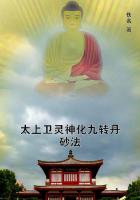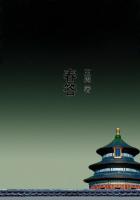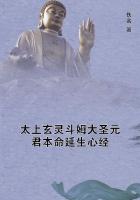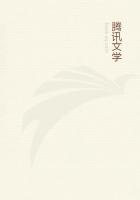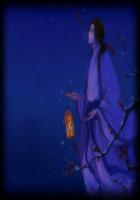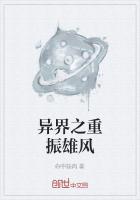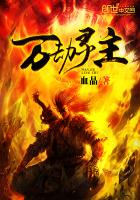58. The power, then, that parents have over their children arises from that duty which is incumbent on them, to take care of their offspring during the imperfect state of childhood. To inform the mind, and govern the actions of their yet ignorant nonage, till reason shall take its place and ease them of that trouble, is what the children want, and the parents are bound to. For God having given man an understanding to direct his actions, has allowed him a freedom of will and liberty of acting, as properly belonging thereunto within the bounds of that law he is under. But whilst he is in an estate wherein he has no understanding of his own to direct his will, he is not to have any will of his own to follow. He that understands for him must will for him too; he must prescribe to his will, and regulate his actions, but when he comes to the estate that made his father a free man, the son is a free man too.
59. This holds in all the laws a man is under, whether natural or civil. Is a man under the law of Nature? What made him free of that law? what gave him a free disposing of his property, according to his own will, within the compass of that law? I answer, an estate wherein he might be supposed capable to know that law, that so he might keep his actions within the bounds of it. When he has acquired that state, he is presumed to know how far that law is to be his guide, and how far he may make use of his freedom, and so comes to have it; till then, somebody else must guide him, who is presumed to know how far the law allows a liberty. If such a state of reason, such an age of discretion made him free, the same shall make his son free too. Is a man under the law of England? what made him free of that law- that is, to have the liberty to dispose of his actions and possessions, according to his own will, within the permission of that law? a capacity of knowing that law. Which is supposed, by that law, at the age of twenty-one, and in some cases sooner. If this made the father free, it shall make the son free too. Till then, we see the law allows the son to have no will, but he is to be guided by the will of his father or guardian, who is to understand for him.
And if the father die and fail to substitute a deputy in this trust, if he hath not provided a tutor to govern his son during his minority, during his want of understanding, the law takes care to do it: some other must govern him and be a will to him till he hath attained to a state of freedom, and his understanding be fit to take the government of his will. But after that the father and son are equally free, as much as tutor and pupil, after nonage, equally subjects of the same law together, without any dominion left in the father over the life, liberty, or estate of his son, whether they be only in the state and under the law of Nature, or under the positive laws of an established government.
60. But if through defects that may happen out of the ordinary course of Nature, any one comes not to such a degree of reason wherein he might be supposed capable of knowing the law, and so living within the rules of it, he is never capable of being a free man, he is never let loose to the disposure of his own will; because he knows no bounds to it, has not understanding, its proper guide, but is continued under the tuition and government of others all the time his own understanding is incapable of that charge. And so lunatics and idiots are never set free from the government of their parents:
"Children who are not as yet come unto those years whereat they may have, and innocents, which are excluded by a natural defect from ever having." Thirdly: "Madmen, which, for the present, cannot possibly have the use of right reason to guide themselves, have, for their guide, the reason that guideth other men which are tutors over them, to seek and procure their good for them," says Hooker (Eccl.
Pol., lib. i., s. 7). All which seems no more than that duty which God and Nature has laid on man, as well as other creatures, to preserve their offspring till they can be able to shift for themselves, and will scarce amount to an instance or proof of parents' regal authority.
61. Thus we are born free as we are born rational; not that we have actually the exercise of either: age that brings one, brings with it the other too. And thus we see how natural freedom and subjection to parents may consist together, and are both founded on the same principle. A child is free by his father's title, by his father's understanding, which is to govern him till he hath it of his own.
The freedom of a man at years of discretion, and the subjection of a child to his parents, whilst yet short of it, are so consistent and so distinguishable that the most blinded contenders for monarchy, "by right of fatherhood," cannot miss of it; the most obstinate cannot but allow of it. For were their doctrine all true, were the right heir of Adam now known, and, by that title, settled a monarch in his throne, invested with all the absolute unlimited power Sir Robert Filmer talks of, if he should die as soon as his heir were born, must not the child, notwithstanding he were never so free, never so much sovereign, be in subjection to his mother and nurse, to tutors and governors, till age and education brought him reason and ability to govern himself and others? The necessities of his life, the health of his body, and the information of his mind would require him to be directed by the will of others and not his own; and yet will any one think that this restraint and subjection were inconsistent with, or spoiled him of, that liberty or sovereignty he had a right to, or gave away his empire to those who had the government of his nonage? This government over him only prepared him the better and sooner for it. If anybody should ask me when my son is of age to be free, I shall answer, just when his monarch is of age to govern.
"But at what time," says the judicious Hooker (Eccl. Pol., lib. i., s.

